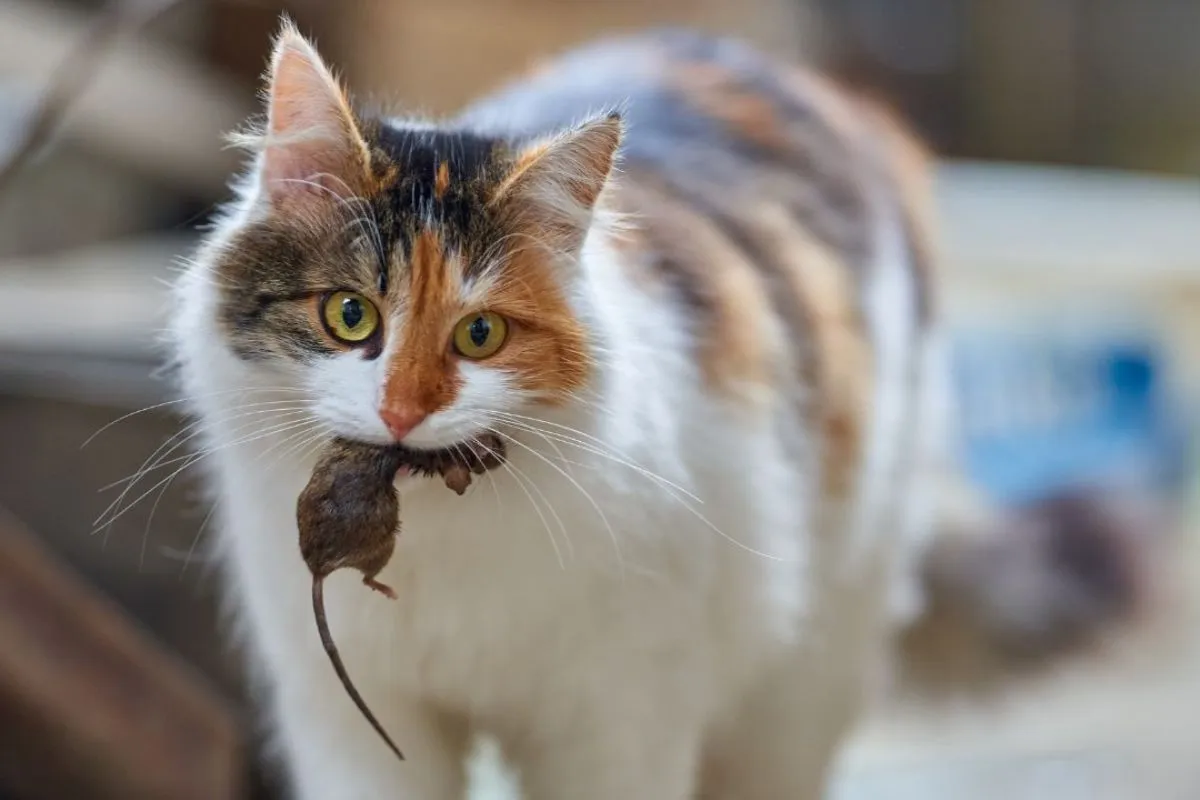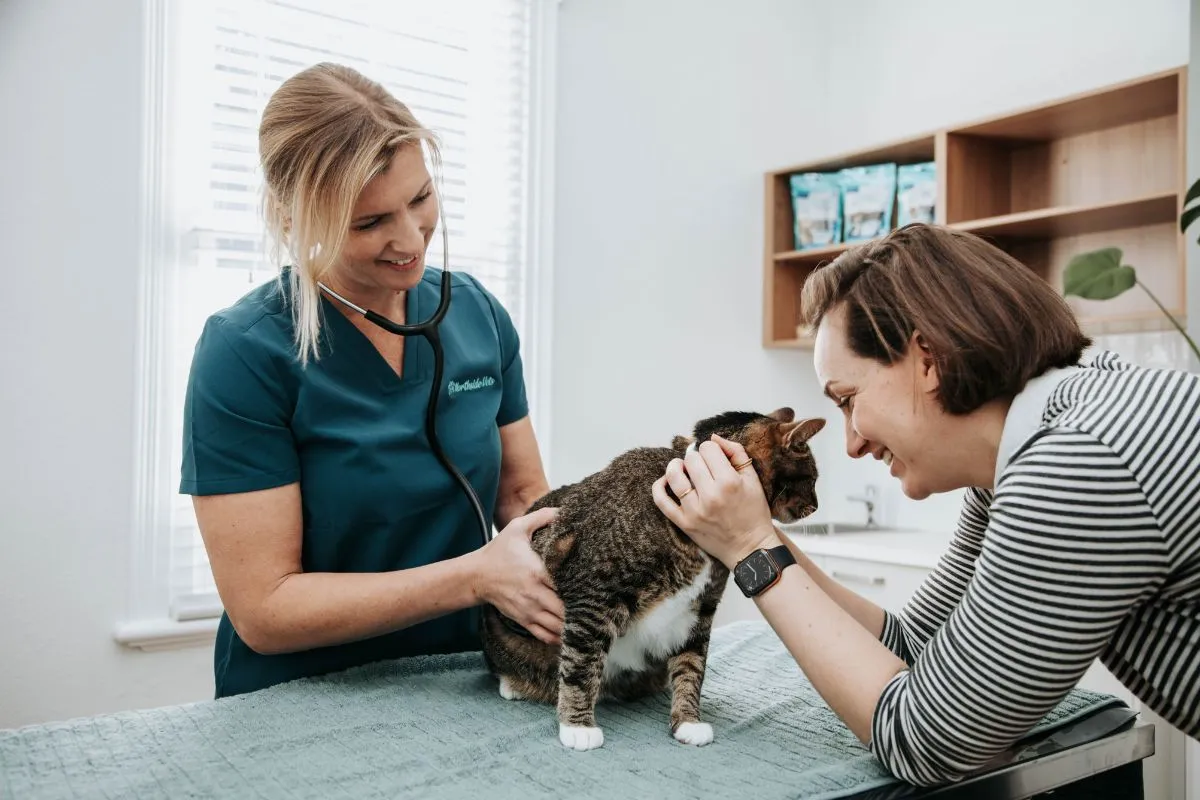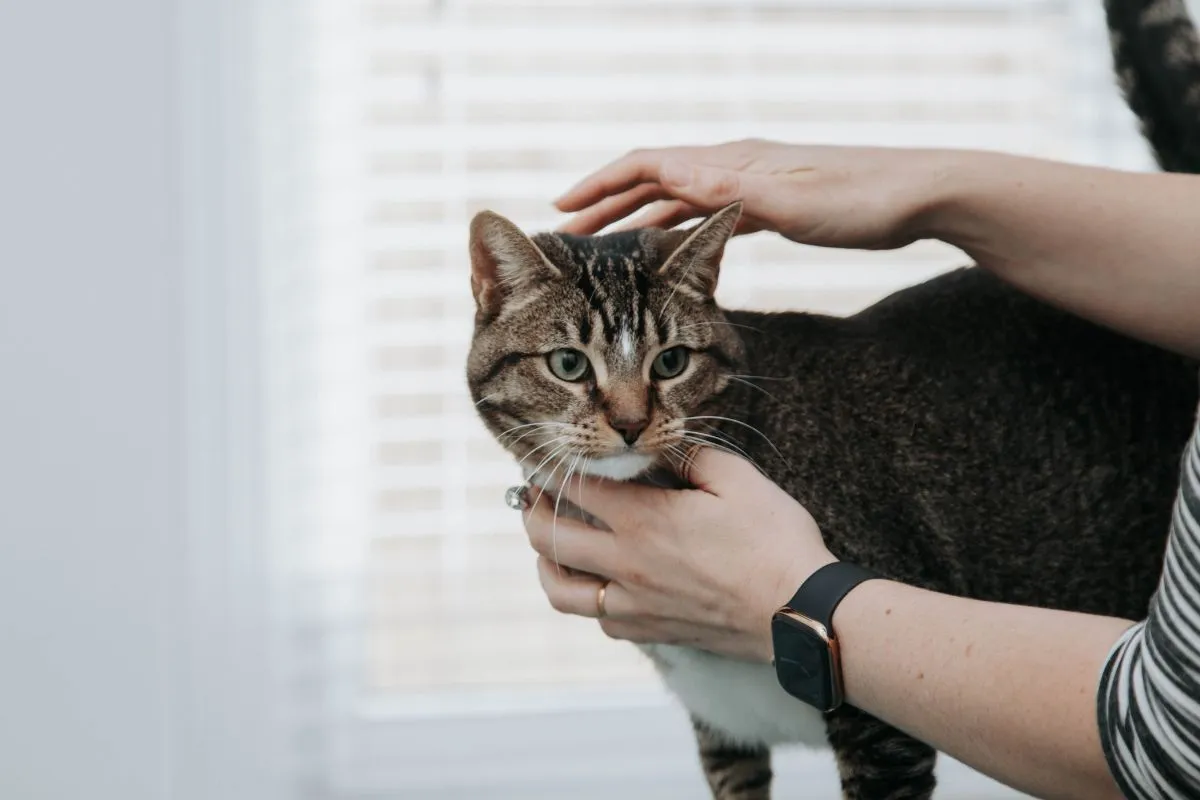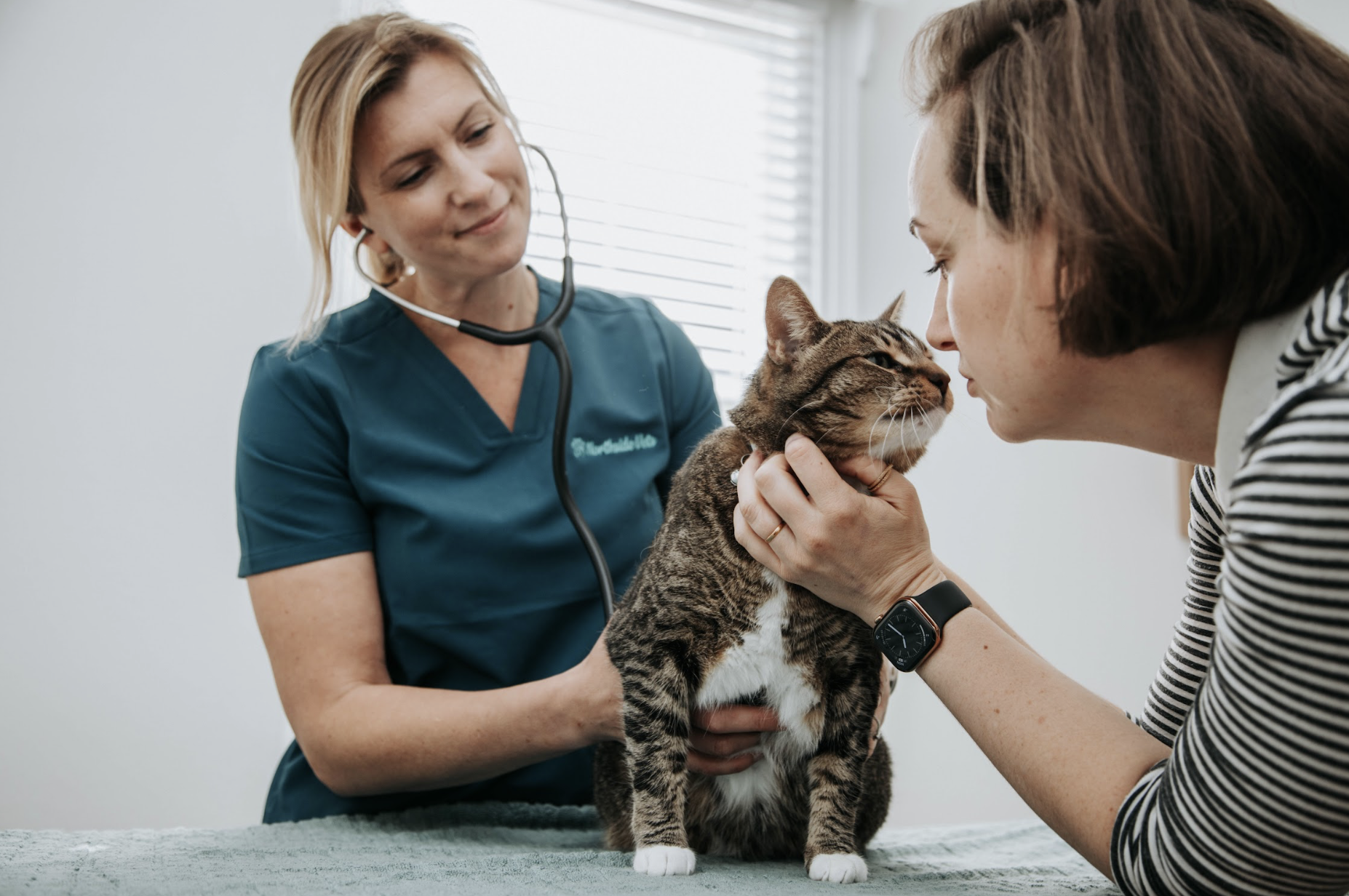Let’s be honest, cats are amazing, but they do have a knack for picking up some less-than-glamorous hitchhikers.
We’re talking about worms! These sneaky little parasites like to set up camp in your cat’s intestines, and while they’re common, they’re definitely not welcome. They can affect the human members of our family too.
At Northside Vets, we’re here to help Melbourne cat owners understand all things worms, including how to protect from infection, how to treat and signs to watch out for.

The Sneaky Ways Cats Catch Worms
Cats can pick up worms in a few different ways:
- Grooming themselves after stepping in contaminated soil or faeces
- Hunting and eating prey such as mice or birds
- Eating a raw meat diet
- Swallowing fleas that carry tapeworm eggs
- Nursing from their mother if she’s carrying roundworms.
Even indoor cats aren’t completely safe, as fleas and worm eggs can sneak inside on shoes, clothing, or other pets.

Types of Worms in Cats
- Roundworms – long, spaghetti-like worms that often affect kittens.
- Hookworms – tiny worms that latch onto the gut lining and feed on blood.
- Tapeworms – flat worms made up of little segments, often spread by fleas or hunting rodents.
- Lungworm - worms that grow into adults in the lungs and airways of a cat.
Signs of Cat Worms You Shouldn’t Ignore
Knowing the signs of worms in cats can save your pet discomfort. Even subtle signs of worms in cats deserve attention, especially in adult cats.
Watch out for:
- Vomiting or diarrhoea
- A bloated tummy (especially in kittens)
- Weight loss despite eating well
- Lethargy
- A dull or scruffy coat
- Scooting or licking around the bottom
- Tiny white “rice grain” segments (tapeworms) near the tail or in bedding
- Respiratory signs like sneezing, nasal discharge, difficulty breathing
If you notice any of these, it’s worth booking a check-up.

Can Worms Jump From Cats to Humans?
Yes, humans can also become infected with intestinal worms from cats. Children are especially vulnerable, as their immune systems are still developing, they are more likely to come into contact with cat faeces (for example, while playing in sandpits), and they may have poorer hand hygiene.
Adults with weakened immune systems are also at higher risk. While many people infected with intestinal parasites from cats may not develop symptoms, some do become unwell.
Roundworms can cause disease in humans when their larvae are ingested and this is often caused by contaminated fingers placed in the mouth.
After ingestion, the larvae can travel through abdominal organs such as the liver, or even to the brain. Possible symptoms of roundworms in humans include fever, fatigue, coughing, wheezing, and abdominal pain. In some cases, the larvae may migrate to the eye, leading to vision problems, abnormal eye movements, or pain and discomfort.
Hookworms can cause skin irritation because their larvae are able to penetrate the skin. This often occurs when a person steps barefoot on contaminated soil or faecal matter. As the larvae move under the skin (commonly in the foot) they can cause inflammation, itching, pain, and raised red lines that trace their path of migration.

How to Protect Your Cat
The good news? Protecting your cat from worms is straightforward.
At Northside Vets, we can help to protect your cat with a tailored cat worming plan based on their age, lifestyle, other medical conditions, and how readily they accept their worming treatments.
Regular deworming
Most adult cats should be wormed every three months, although the exact schedule depends on their lifestyle and exposure. Kittens need more frequent treatment to clear worms passed on from their mother before birth and through nursing.
Flea control
Ongoing flea prevention is important, as fleas are the main way cats pick up tapeworms. Consistent flea protection helps keep both fleas and intestinal worms under control.
Clean environment
Maintaining hygiene reduces the risk of reinfection. Scoop the litter tray daily, and when possible, discourage your cat from hunting to lower their chances of catching parasites.
Vet-recommended products
Not all flea and worming products work equally well. Some older worming treatments are less effective, and many don’t cover the full range of worms. Ask us about the best options for your cat.
Treat all pets in the household
Worms and fleas spread easily between pets, so it’s important to treat every animal in the home. They can pass parasites through shared bowls, bedding, or even while you are giving them attention.

Get in touch with us
If your cat is not so keen on their worming treatment, let us know - we may have an easier option. Protecting your cat and your family members doesn’t have to be stressful!
Our experienced nurses can administer worming treatments for you to save you the stress!
A regular visit for a deworming tablet, a nail trim and a weight check is a great way to keep your cat in tip top shape!
What to Do if Your Cat Has Worms
If your cat is diagnosed with worms, there are some important steps to protect your family:
- Administer an effective worming treatment to all pets in the house
- Thoroughly clean your pets’ bedding and litter tray, food and water bowls
- Maintain good litter tray hygiene daily removal of faeces and regular full clean
- Contact our team if your cat’s symptoms are not quickly resolving and we can discuss whether there may be other causes of your cat’s symptoms.
These precautions, combined with regular cat worming and proper hygiene, make a big difference in controlling infections.
Other Parasites in cats
Not all tummy troubles in cats are caused by worms. Other parasites can affect the intestines and cause very similar symptoms:
Toxoplasma – This parasite doesn’t just affect cats, it can pose health risks to people, especially pregnant women. Infection in cats can cause fever, lethargy, loss of appetite, breathing difficulties and diarrhoea, similar to intestinal worms. Pregnant women should avoid contact with litter trays to reduce their exposure.
Coccidia – This is not a worm, but another microscopic parasite that lives in a cat's intestines. The eggs become infectious in faeces after a day or two, so infection control involves cleaning the litter tray daily. Cats become infected by eating rodents, or raw or undercooked meat. Symptoms are similar to those of intestinal worms.
.webp)
Keep Your Cat Healthy and Your Family Safe
Don’t let worms creep up on your cat or your household. Regular cat worming and proper treatment with cat dewormer tablets are the easiest ways to protect everyone.
Book a consultation today and we can create a personalised worming schedule for your cat and keep those creepy crawlers at bay.



